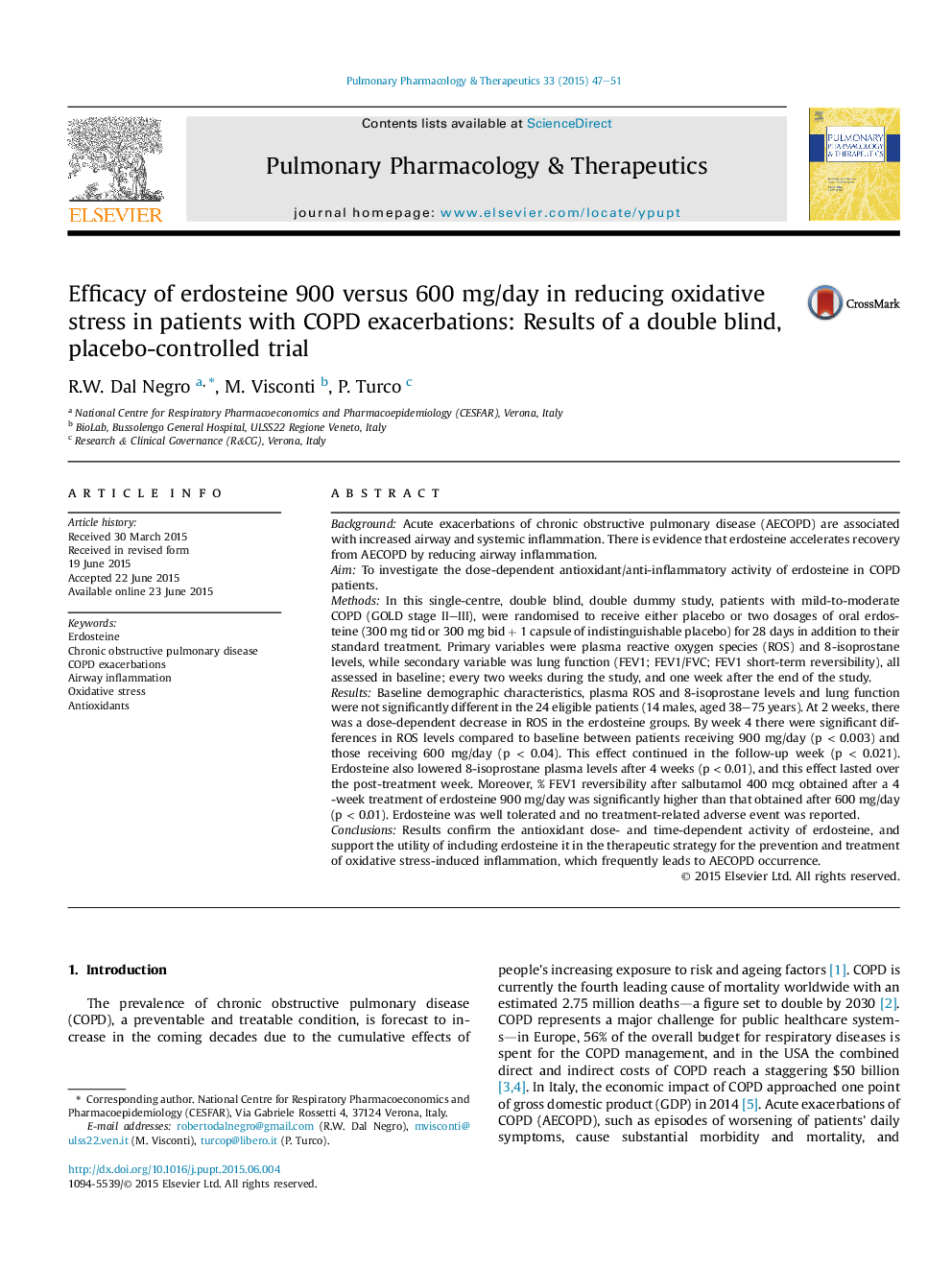| کد مقاله | کد نشریه | سال انتشار | مقاله انگلیسی | نسخه تمام متن |
|---|---|---|---|---|
| 2566978 | 1561090 | 2015 | 5 صفحه PDF | دانلود رایگان |

BackgroundAcute exacerbations of chronic obstructive pulmonary disease (AECOPD) are associated with increased airway and systemic inflammation. There is evidence that erdosteine accelerates recovery from AECOPD by reducing airway inflammation.AimTo investigate the dose-dependent antioxidant/anti-inflammatory activity of erdosteine in COPD patients.MethodsIn this single-centre, double blind, double dummy study, patients with mild-to-moderate COPD (GOLD stage II–III), were randomised to receive either placebo or two dosages of oral erdosteine (300 mg tid or 300 mg bid + 1 capsule of indistinguishable placebo) for 28 days in addition to their standard treatment. Primary variables were plasma reactive oxygen species (ROS) and 8-isoprostane levels, while secondary variable was lung function (FEV1; FEV1/FVC; FEV1 short-term reversibility), all assessed in baseline; every two weeks during the study, and one week after the end of the study.ResultsBaseline demographic characteristics, plasma ROS and 8-isoprostane levels and lung function were not significantly different in the 24 eligible patients (14 males, aged 38–75 years). At 2 weeks, there was a dose-dependent decrease in ROS in the erdosteine groups. By week 4 there were significant differences in ROS levels compared to baseline between patients receiving 900 mg/day (p < 0.003) and those receiving 600 mg/day (p < 0.04). This effect continued in the follow-up week (p < 0.021). Erdosteine also lowered 8-isoprostane plasma levels after 4 weeks (p < 0.01), and this effect lasted over the post-treatment week. Moreover, % FEV1 reversibility after salbutamol 400 mcg obtained after a 4 -week treatment of erdosteine 900 mg/day was significantly higher than that obtained after 600 mg/day (p < 0.01). Erdosteine was well tolerated and no treatment-related adverse event was reported.ConclusionsResults confirm the antioxidant dose- and time-dependent activity of erdosteine, and support the utility of including erdosteine it in the therapeutic strategy for the prevention and treatment of oxidative stress-induced inflammation, which frequently leads to AECOPD occurrence.
Journal: Pulmonary Pharmacology & Therapeutics - Volume 33, August 2015, Pages 47–51